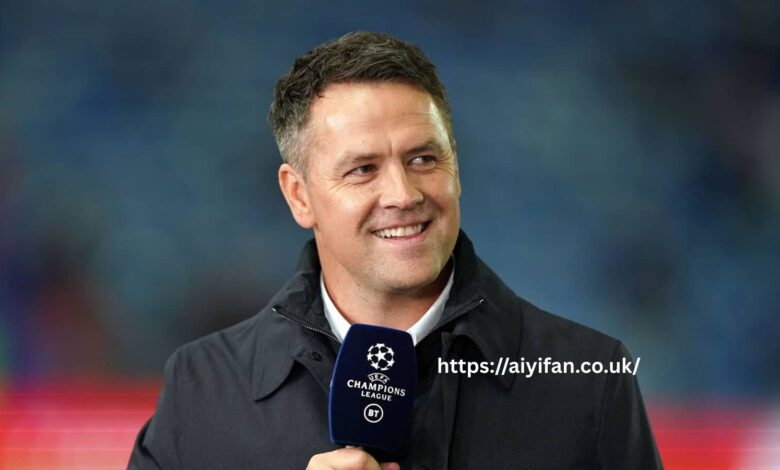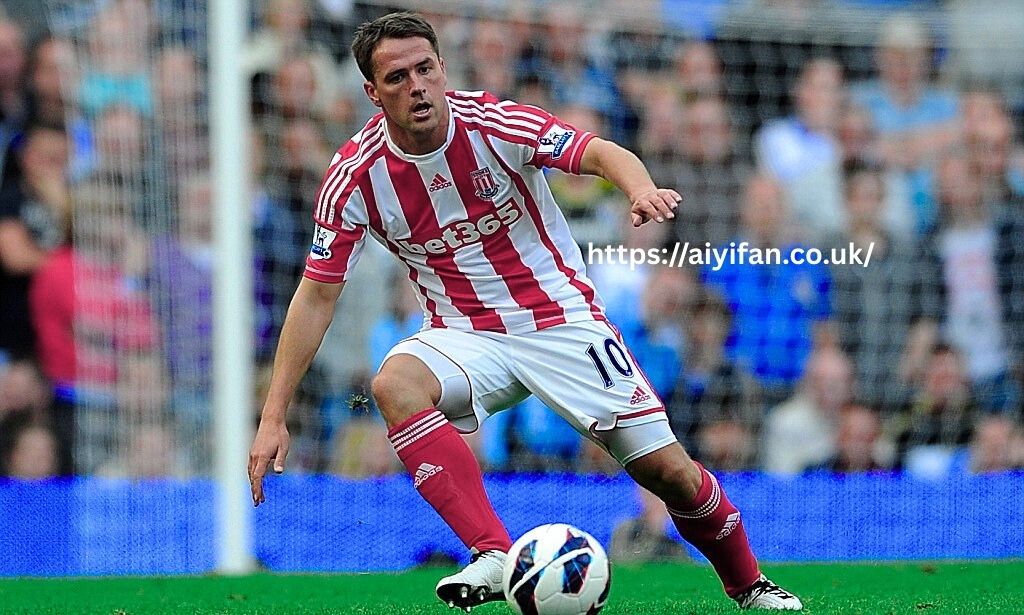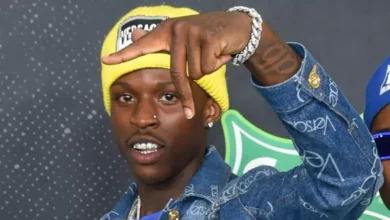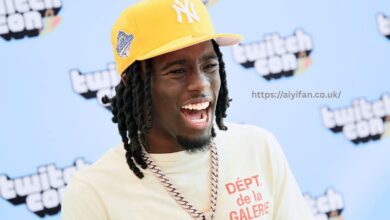Michael Owen Career, Achievements, Life After Football, and Legacy

Michael Owen is a name that still sparks excitement among football fans, especially those who grew up watching the Premier League in the late 1990s and early 2000s. Known for his blistering pace, clinical finishing, and boy-next-door charm, Owen rose to global fame as one of England’s brightest footballing talents. He won the Ballon d’Or in 2001, played for clubs like Liverpool, Real Madrid, Newcastle United, Manchester United, and Stoke City, and represented England in three World Cups. Beyond football, he has carved a career as a TV pundit and is also deeply passionate about horse racing.
This article takes you through Michael Owen journey – from a teenage prodigy at Liverpool to his life after retirement – and explores why he remains an unforgettable figure in football history.
Early Life and Rise at Liverpool
Michael James Owen was born on 14 December 1979 in Chester, England. Football ran in the family – his father, Terry Owen, was also a professional footballer. From an early age, Michael stood out for his speed and natural ability in front of goal.
At 12 years old, he signed schoolboy forms with Liverpool, a decision that shaped his destiny. By the age of 17, he made his professional debut for the Reds in 1997. Almost immediately, he announced himself to the world: Owen scored on his debut against Wimbledon, showing the fearless finishing that would become his trademark.
During the 1997–98 season, he became Liverpool’s first-choice striker, scoring 18 Premier League goals and winning the Golden Boot – not bad for a teenager.
Breakthrough on the International Stage 1998 World Cup
Michael Owen’s reputation skyrocketed during the 1998 FIFA World Cup in France. England fans will never forget his stunning solo goal against Argentina in the Round of 16 – a run from the halfway line that ended with a thunderous finish past Carlos Roa. That goal announced Owen as one of the most exciting young strikers in world football.
By the end of the tournament, despite England’s elimination on penalties, Owen had become an international superstar. His pace, composure, and confidence made him England’s golden boy, a role he carried into the next decade.
Liverpool Years Goals, Glory, and the Ballon d’Or
From 1997 to 2004, Owen was Liverpool’s talisman. In 297 appearances, he scored 158 goals, making him one of the club’s greatest strikers. His partnership with Robbie Fowler and later Emile Heskey brought Liverpool plenty of success.
The highlight of his Liverpool career came in 2001, when the club won a historic treble:
- FA Cup
- League Cup
- UEFA Cup
In the FA Cup Final against Arsenal, Owen scored two late goals, single-handedly turning the match around and securing victory. That performance, along with his consistent brilliance, earned him the Ballon d’Or in 2001, making him the first English player since Kevin Keegan (1979) to win the prestigious award.
The Real Madrid Adventure
In 2004, Owen made a high-profile move to Real Madrid, joining the famous “Galácticos” alongside players like Ronaldo, Zidane, Figo, Beckham, and Raúl. The transfer fee was £8 million plus Antonio Núñez.
Although his time in Spain lasted only one season, Owen’s impact was respectable:
- 13 La Liga goals in 36 appearances
- Often used as a substitute, but maintained one of the best goals-per-minute ratios in the league
Despite his efforts, he never fully settled in Madrid, partly due to the intense competition for places and his family’s desire to return to England. In 2005, Owen returned to the Premier League with Newcastle United.
Newcastle United Promise and Injury Struggles
Owen’s move to Newcastle United was met with excitement, but unfortunately, this stage of his career was plagued by injuries. A serious cruciate ligament injury in the 2006 World Cup kept him sidelined for almost a year.
Still, when fit, Owen delivered goals for Newcastle. He scored 30 goals in 79 games, but fans were left with a sense of “what could have been,” as injuries robbed him of consistency.
Manchester United and Stoke City – The Final Chapter
In 2009, Sir Alex Ferguson took a gamble and signed Owen for Manchester United on a free transfer. Many were surprised, but Owen contributed as a squad player and delivered some memorable moments:
- A dramatic last-minute winner in the 2009 Manchester Derby against City (4–3)
- Part of the squad that won the 2010 Premier League title
- Scored a hat-trick in the Champions League against Wolfsburg
After three seasons, he moved to Stoke City in 2012, but by then, injuries and age had caught up with him. He retired in 2013, aged just 33.
England Career Highs and Lows
Michael Owen scored 40 goals in 89 appearances for England, making him the country’s sixth all-time top scorer. His highlights include:
- 1998 World Cup goal vs Argentina (still replayed decades later)
- Hat-trick against Germany in the 2001 World Cup qualifier (England won 5–1 in Munich)
- Playing in three World Cups (1998, 2002, 2006) and two European Championships
Sadly, just like his club career, injuries cut short his international influence. By his late 20s, Owen was no longer the explosive forward England relied on.
Life After Retirement
After hanging up his boots, Michael Owen transitioned into several roles:
- 1. Football Punditry
He became a regular face on BT Sport, BBC, and Premier League coverage, offering insights on games. Though his punditry style sometimes divides opinion, he remains respected for his first-hand knowledge.
- 2. Horse Racing
Owen has always been passionate about horses. He owns Manor House Stables in Cheshire, which has produced successful racehorses. He even trained as a jockey for charity events.
- 3. Business and Ambassadorships
From endorsements to ambassador roles for Liverpool and betting companies, Owen has kept a strong presence in the sports business world.

Playing Style What Made Him Special?
Michael Owen’s playing style was defined by:
- Explosive pace – defenders dreaded facing him one-on-one
- Deadly finishing – clinical inside the box, calm under pressure
- Intelligent movement – always on the shoulder of defenders
- Fearlessness – even as a teenager, he thrived on the biggest stages
If injuries hadn’t slowed him down, many believe Owen could have rivaled the very best strikers of his generation.
Awards and Achievements
- Ballon d’Or – 2001
- Premier League Golden Boot – 1997–98, 1998–99
- FA Cup, League Cup, UEFA Cup, Super Cup – with Liverpool (2001)
- Premier League Champion – with Manchester United (2010)
- England Player of the Year – 1998, 2003
Legacy
Michael Owen’s career can be summed up as a story of brilliance and heartbreak. At his peak, he was unstoppable – a teenage sensation who terrified defenders. But injuries prevented him from sustaining greatness over a long period. Still, his 1998 goal vs Argentina, his 2001 Ballon d’Or, and his contributions to Liverpool and England ensure his place in football history.
Even today, when fans talk about the most exciting young strikers England has ever produced, Michael Owen’s name is always at the top of the list.
Conclusion
Michael Owen’s journey is a reminder of football’s highs and lows. From a schoolboy at Liverpool to a global superstar winning the Ballon d’Or, his story inspired millions. While injuries shortened his career, the magic moments he gave us – the runs, the goals, the trophies – will never be forgotten. Whether as a striker, a pundit, or a horse racing enthusiast, Michael Owen remains a unique and important figure in the sporting world.





